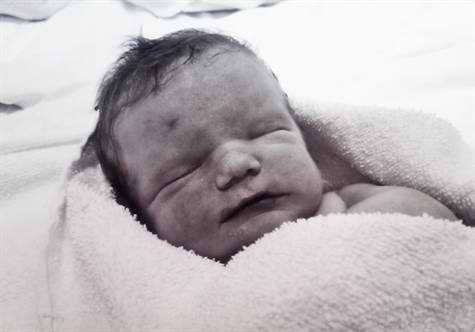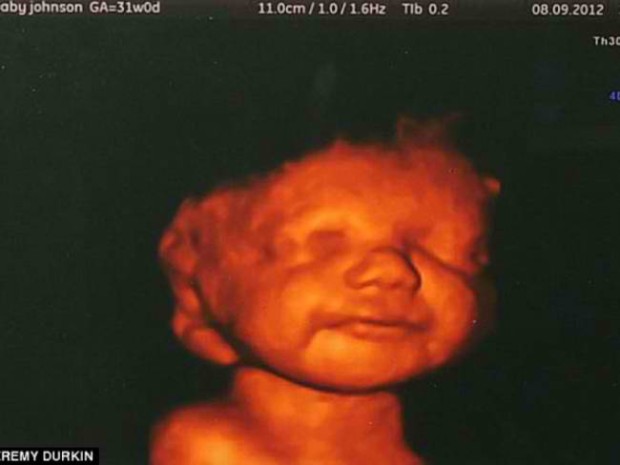
(Saint John Chrysostom: In Praise of the Holy Apostle Paul, III)
Demonstrating the power of human will and the fact that we can fly even to the heavens themselves, leaving the angels and archangels and the other powers, Saint Paul urges believers to become imitators of Christ, sometimes through him (“Become imitators of me, as I am of Christ.”) and sometimes without him (“Therefore become imitators of God, like beloved children.”).
Then, in order to show that nothing befits this imitation so much as living for the common good and looking out for what is useful for each other he adds: “Behave with love”. This is why, when he said “Become imitators of me”, he immediately speaks of love, demonstrating that it is principally this virtue that brings people closer to God, because all the other virtues are certainly inferior to it and all revolve around the human person: the struggle against desire, the war against gluttony, the fight against avarice, the battle against anger. This is why Christ says: “Pray for those who bother you, so that you may be like your Father Who is in heaven”.
So because Paul knew that this was the most important of the virtues, he applied it with great care. Nobody loved their enemies as he did; nobody did so much good to those who envied them; nobody suffered so much for those who had grieved them. He didn’t look at what they were suffering, he saw them as human beings and the more furious they became, the more he forgave their rage. And in the same way as parents treat a child in a tantrum (because the more a child speaks badly and lashes out, the more the parents feel sorry for it), so Paul, thinking about the illness of those who were acting in this way towards him, was stimulated towards ever greater care.
Just listen to the gentleness and sympathy with which he speaks of those who scourged him five times, stoned him, imprisoned him, who thirsted for his blood and were always ready to kill him. “I assure you that they have zeal for God, but not a true awareness.” And, to put those who would have condemned those people in their place, he says: “So do not be proud, but stand in awe. For if God did not spare the natural branches [i.e. of the olive tree which were broken off, Romans 17-21], neither will He spare you”. But when he saw that the decision of the Lord turned against them, he still did what he could. He wept constantly for them, he sorrowed, he tried to prevent others from following them to destruction and tried, as far as was possible, to find a trace of forgiveness for them. Since he couldn’t persuade them with his words, because they were thrawn and unbending, he constantly prayed for them: “Brethren, my heart’s desire and prayer to God for them is that they may be saved”.
And yet he still held out hope for them saying: “For the gifts of God are irrevocable”, so that they wouldn’t despair entirely and be lost. All of these were features of a person who cared about and was aflame for such people, since he says: “The Deliverer shall come from Zion, he will banish ungodliness from Jacob”, because, when he saw their perdition, he was sorely wounded and saddened. This is why he thought up consolations for himself for this pain, sometimes saying: “The Deliverer shall come from Zion, he will banish ungodliness from Jacob”, and at others “so they also have rejected your mercy so that they may receive mercy” Jeremiah does the same thing, struggling to find some justification for those who have sinned, at one time saying: “Even though our iniquities have risen against us, act for your name’s sake” and at another “A person’s way is not their own…No-one shall start out and set their own course”. And elsewhere he also says: “Remember that we’re dust”. Because it’s common among those who intercede on the part of sinners, that even if they can’t find anything actually good to say, at least they’ll think up some insignificant justification, even if it’s not entirely accurate and can’t really be taken as true; at least to provide some comfort for those who are lost.
So let’s not go through these excuses with a fine-tooth comb, but on the understanding that they’re a characteristic of a soul that suffers and is trying to find something to say on behalf of the sinners. And was it only towards the Jews that Paul behaved in this way, and not to the Gentiles? He was more understanding than anyone, both towards his own people and foreigners. Here’s what he says to Timothy: “A servant of God should not be quarrelsome, but kindly towards everyone, an apt teacher, forbearing, correcting his opponents with gentleness, in case God grants them repentance and knowledge of the truth. And that they may be raised from the devil’s snare, captured by Him to do His will”. And do you want to hear him talking to sinners? Listen to what he says to the Corinthians when he sent them his letter: “For I fear that perhaps I may come and find you not what I wish” And immediately afterwards “I feat that when I come again, my God will humble me before you and I may have to mourn over many of those who sinned before and have not repented of the impurity, immorality and licentiousness which they have practised”. And to the Galatians when he says: “My children, with whom I am again in travail until Christ is formed in you”.
And concerning the person who engaged in harlotry, listen how he suffers no less than the man himself and entreats: “Show him love in public” And when he set him apart from the Church, he did so with many tears: “For I wrote to you out of much affliction and anguish of heart and with many tears, not to cause you pain, but to let you know the abundant love I have for you”. And again he says: “To the Jews I became as a Jew; to those under the law I became as one under the law; to the weak I became weak; I became all things to all people that I might save some”. And elsewhere he says: “ that I may present every person perfect in the name of Jesus Christ”.
Have you seen a soul that’s worth more than the whole world? He wanted to present every person as perfect, and, so far as it depended on him, that’s how he presented them. Because it’s as though he fathered all of them, all the people in the world: he worried; he chivvied; he tried to bring everybody into the kingdom of heaven, healing, comforting, giving promises, praying, interceding, striking fear into the demons, dismissing those who were corrupting the others, with his presence, with letters, with discourses, with actions, with his disciples; restoring, by his example, those whose faith had been shaken, supporting those who were unstable, raising those who had fallen, healing those whose lives had been shattered, exhorting the indifferent, emitting dreadful cries to the enemies and fixing opponents with a dread stare. As if he were a general or a skilled doctor, he himself was a sutler, an adjutant, a defender, a comrade-in arms, everything you’d find in an army camp. And his concern wasn’t confined to the spiritual but also extended to the material.
So listen to Paul, how he talks about a woman when he’s writing to a whole city. “I commend to you our sister Phoebe, a deacon of the church at Cenchreae, so that you may welcome her in the Lord as is fitting for the saints, and help her in whatever she may require from you”. Or again, “You know the house of Stephanas… be in subjection to such men and to everyone who helps in the work and labours” and “acknowledge such men”. Because this, too, is typical of the care and attention of the saints: the desire to be of assistance in such cases, as well. So Elisha says to the woman who had shown him hospitality: “Is there anything you want said to the king or the governor?”. In other words, he was not content with helping her spiritually, he wanted to offer material assistance as well.
And why would anyone be surprised that Paul made such recommendations in his letters, because, whenever he summoned anyone to come to him, he didn’t consider it beneath him to refer to the supplies they would need? Writing to Titus, he says: “Do your best to speed Zenas the lawyer and Apollos on their way; see that they lack nothing”. And if, when he had sent someone, he gave orders that they were to be well supplied, how much more would he do when he realized that they were in some kind of danger? See, when he writes to Philemon, how concerned he is about Onesimus, how he writes with such sense, so much paternal interest. Now, if he didn’t avoid writing a letter on behalf of a slave- and one who had escaped and made off with many of his master’s belongings, at that- just think how he was towards others.
Because he considered only one thing shameful: if you overlooked something that was necessary for another person’s salvation. This is why he would move anything at all, would never hesitate to expend whatever was needed, on behalf of those who were being saved, be it money, words or even his own body. Because surely he who had risked death so many times wouldn’t balk at giving money, provided he had any. And why do I say, “Provided he had any?”. Because it’s actually possible to show that, even though he had none, he didn’t miss it. Don’t think that what I’m saying is a conundrum, but listen again to what he says, writing to the Corinthians: “But I will most gladly spend and be spent for your souls” And, speaking to the elders of the Ephesians, he says: “You yourselves know that these hands have ministered to my self and those with me”
And while he was great in the chief virtue of love, he was also more devouring than any flame. Just as iron, when it falls into the fire, becomes all aflame, so Paul, when he was once ignited with the flame of love, became wholly love. As if he were the common father of all humanity, he tried to imitate fathers, or rather to surpass all fathers, both in their care for corporeal matters as well as those of the spirit, placing his money, words, body, soul and everything he had at the service of those he loved. This is why he called love a completion of the law, the bond of perfection, the mother of all good things, and the beginning and end of virtue. This is why he also says; “The aim of our charge is love that issues from a pure heart and a good conscience”. And again “For the commandments ‘You shall not commit adultery’; ‘you shall not kill’; [and any other commandment] are summed up in this sentence: ‘You shall love your neighbour as yourself’”.
So since the beginning and end of all good things is love, let us follow Saint Paul in this, because he became the person he was through love. Never mind the dead he raised or the lepers he cleansed. God’s not going to require that of you. Acquire the love of Paul and you’ll have the perfect crown. Who says so? The father of love himself, he who valued it above all signs and portents and above so many other things. Because he had it to such a high degree, he knew full well how powerful it is. That’s how he became such a person, and nothing made him so worthy a man as the power of love. This is why he also says: “But earnestly desire the highest gifts and I will show you a more excellent way”, meaning love, the best and easiest path.
Then let us, too, walk this path, so that we’ll see Paul, or, even better, Paul’s Lord, and win the eternal crowns, through the grace and love for mankind of our Lord, Jesus Christ, to Whom belong glory and power, always, now and forever and unto the ages of ages. Amen.
Saint John Chrysostom: Ἐγκώμιον εἰς τὸν Ἅγιον Ἀπόστολον Παῦλον, Λόγος γ´







